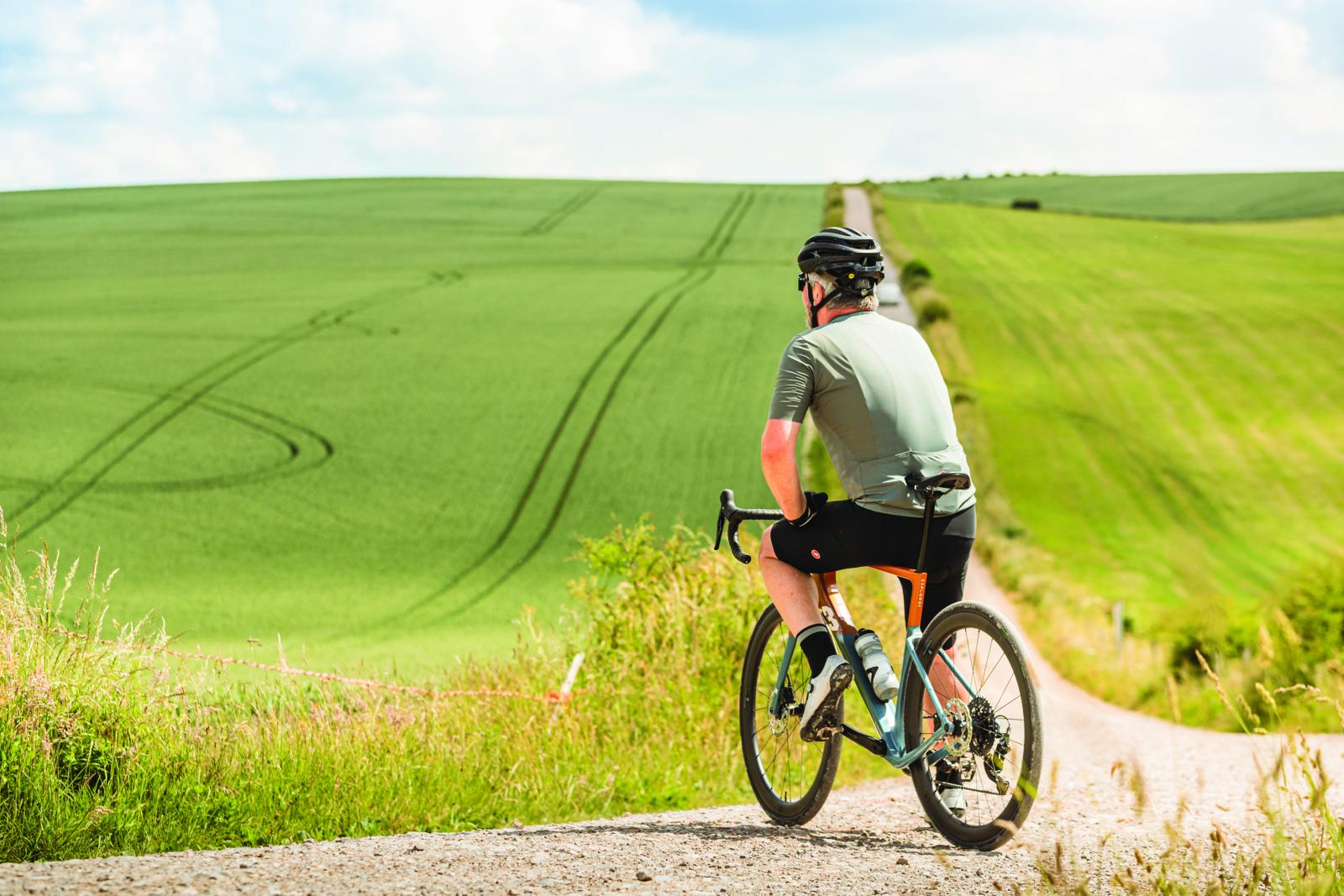For this week’s edition of Bike of the Week, we have a Pinarello Dyodo gravel ebike that is equipped with a production preview version of FSA’s System ebike motor. This is the first time the system has been allowed out in the wild by FSA’s engineers.
The Pinarello Dyodo gravel bike is the basis for this build, but its what’s inside that we’re interested in.
What is Bike of the Week?
Every week, we bring you a detailed first look at one of the latest bikes (or framesets) to arrive at BikeRadar HQ – from road to commuting, gravel to enduro, and anything in between.
This is our chance to introduce the bike and everything that makes it unique before hitting the road or trails.
Head to our Bike of the Week hub for previous editions.
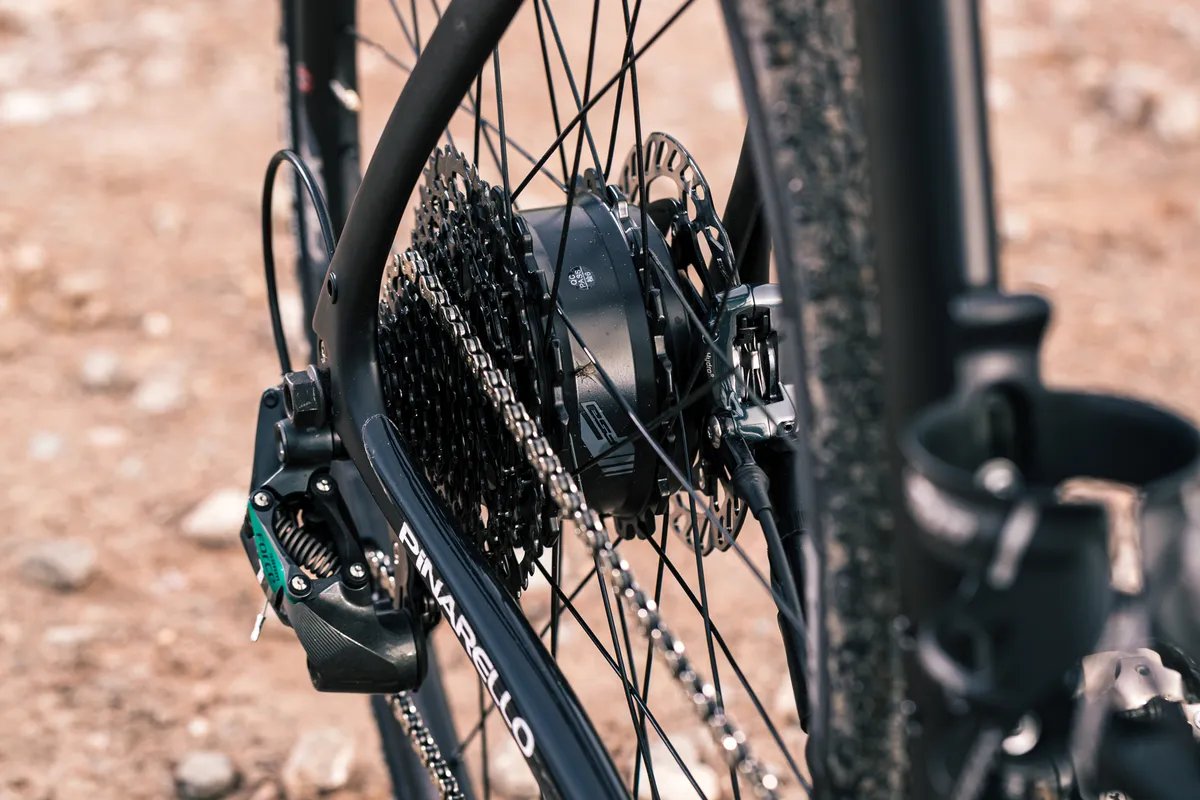
We first saw the FSA System ebike motor at Eurobike 2019 and it has been in development for more than 18 months.
It's now on the brink of being released to manufacturers and is primarily aimed at those looking to build lightweight ebikes – think e-road and e-gravel bikes rather than load-hauling cargo mules.
FSA has been supplying component parts for plenty of ebikes in recent years (dedicated ebike system cranks, for example) to brands including Bianchi, Focus, Pinarello, Cube, KTM, Fantic and Scott. Nonetheless, it’s still a surprise to see the brand branch out into a full system.
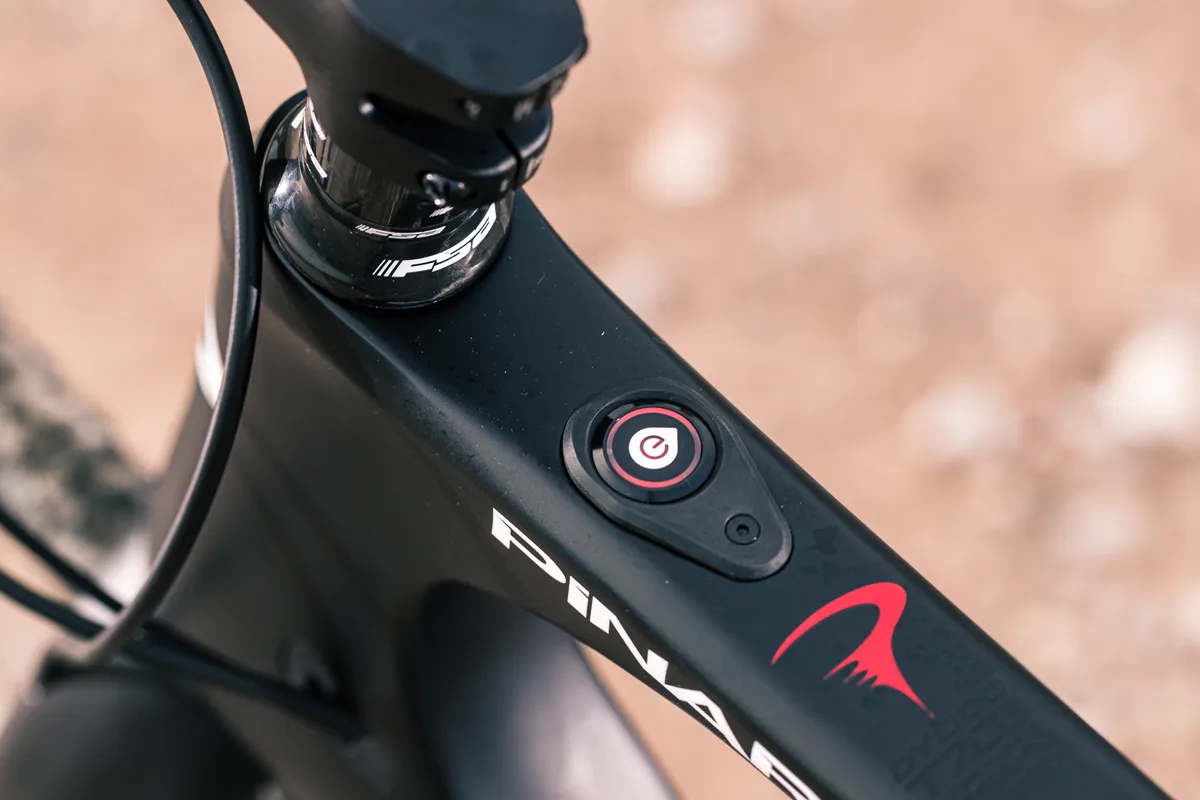
The system bears many similarities to Mahle’s ever-popular eBikemotion system. Both use a rear hub-based 250w motor combined with an internal 250w/h battery. Like Mahle’s system, the FSA System is also controlled by a small button integrated into the top tube of the bike.
The FSA System weighs a claimed 3.98kg for the complete package. This compares to a claimed 3.5kg for the eBikemotion system.
FSA provides the FSA System on four accompanying wheelsets that have been developed to incorporate the hub – the Vision Metron 40 SL Disc, Trimax 30 Disc, Team 30 Disc and AGX gravel-specific wheelsets. Further wheelset options are already in development.
Unlike rival systems, FSA has integrated a torque and speed sensor into the hub. This means bikes equipped with the system don't require a separate sensor on the non-drive chainstay.
The motor offers five assistance settings, including an ‘eco’ Green and ‘boost’ Red mode. The latter serves up to a maximum of 250w assistance and 42Nm of torque. The motor itself features two integrated speed sensors and a torque sensor.
When exceeding the EU limit of 25km/h (32km/h for the USA), the hub shuts down. FSA claims that, when disengaged, the system presents minimal friction and resistance, giving a natural pedalling feel.
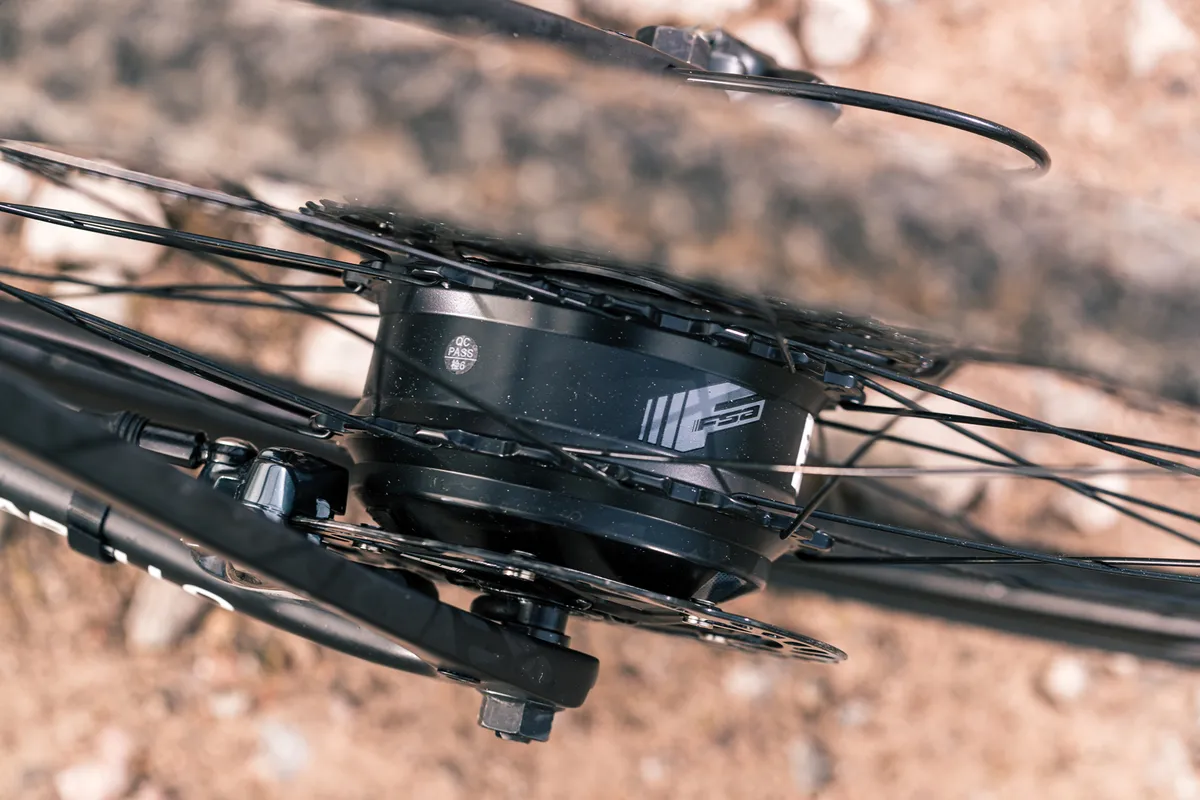
Another not-often-mentioned benefit of hub systems is the low Q-factor (the horizontal distance between each crank arm) compared to a crank-based motor.
Crankset-based systems typically have a wider Q-factor to accommodate the motor casing. As the motor is based in the hub, it’s possible to use a standard crankset on the Dyodo.
A dedicated app for the FSA ebike system has also been developed. This is available for both iOS and Android devices.
The app allows riders to record ride and usage statistics, and display remaining battery life and charge status. It also includes full GPS turn-by-turn navigation.
The app also features a diagnostic centre for troubleshooting any issues with the system. This includes chatbot interaction to help diagnose any issues and the ability to communicate directly with FSA’s service centres worldwide.
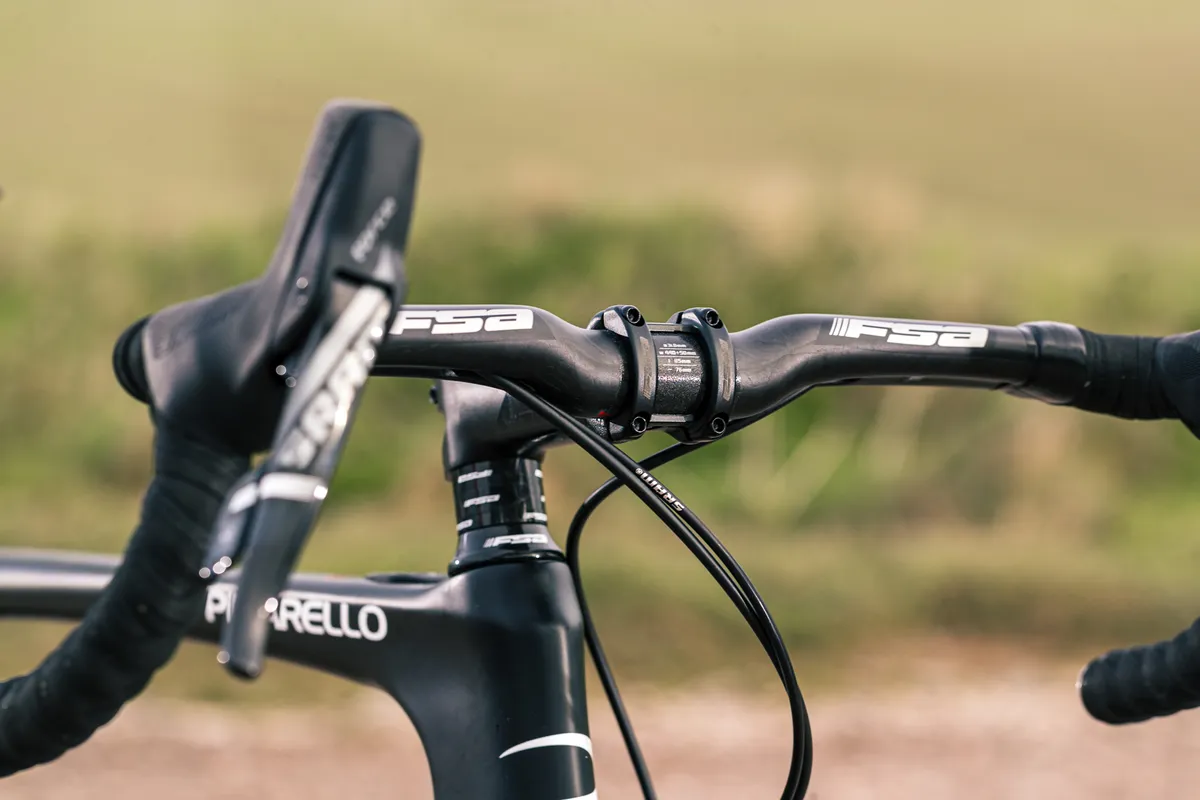
Our test bike is built up with a selection of FSA’s gravel-specific AGX components, including its AGX alloy tubeless-ready wheels, which are fitted with Maxxis Mud Wrestler tyres in a 33mm width.
The cockpit is an FSA K-Wing AGX bar, which is paired with an FSA SL-K ACS stem.
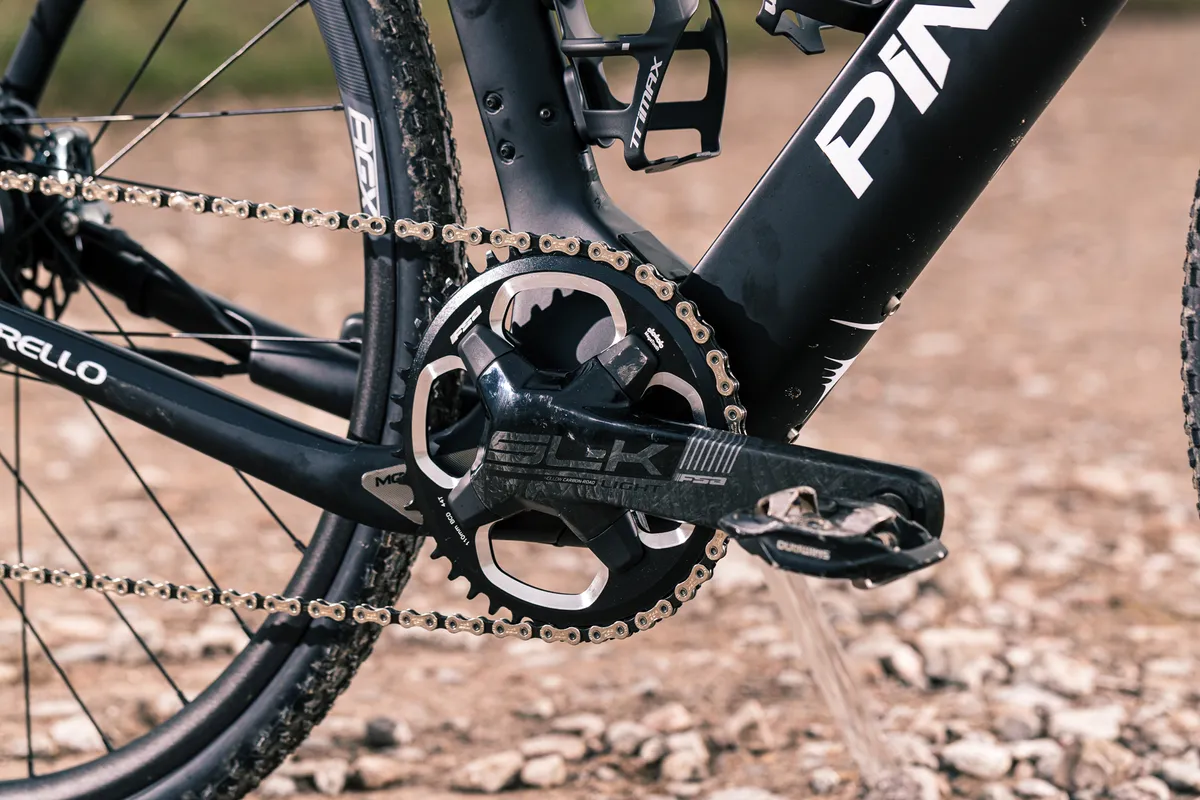
With the exception of the FSA SL-K carbon chainset, the groupset is all from SRAM’s Force 1 range.
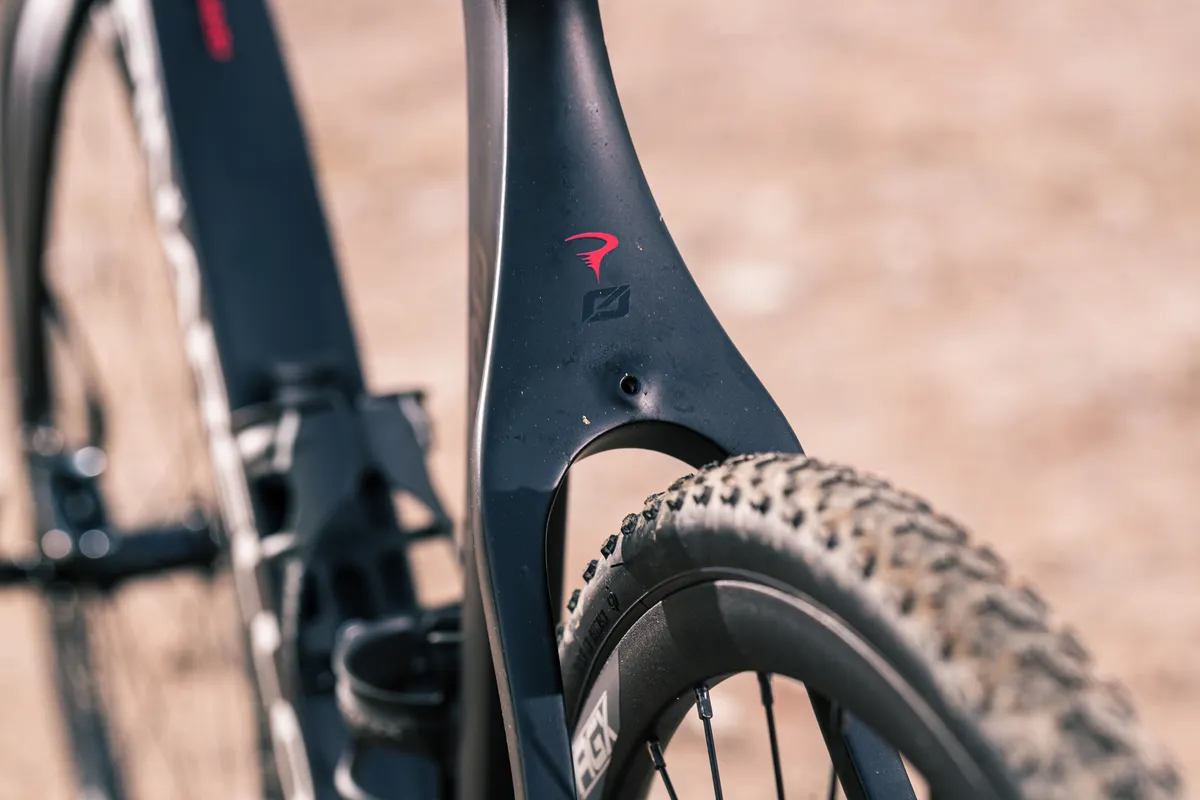
All in, our size 58cm bike weighs 13.5kg. This weight includes a pair of Shimano PDM530 pedals, two bottle cages, a standard Garmin mount and a bell.
We've already been out testing the new bike and found the system to be pretty punchy – it compares well to both eBikemotion and Fazua’s systems in that regard.
Range is also comparable – managing to eke out 72km on a ride with 438m in very cold temperatures, which significantly degrades the performance of any ebike motor system.
